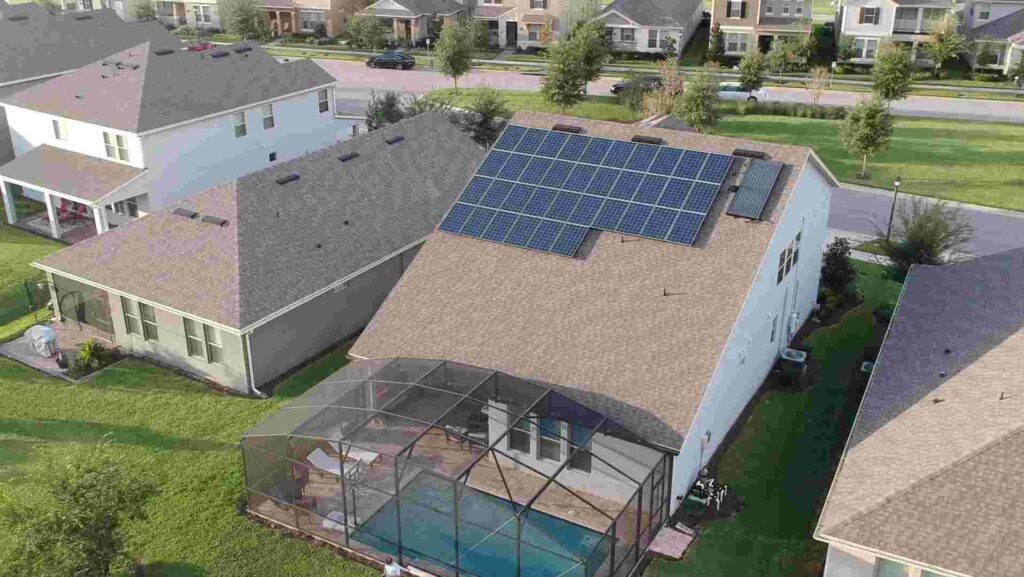Florida’s nickname, the Sunshine State, is a testament to its potential as a powerhouse in the solar energy industry. With an average of 230 sunny days per year, Orlando and the broader Florida region offer fertile ground for solar installation businesses. However, tapping into this potential requires navigating the state’s unique landscape of opportunities and challenges. Here’s an in-depth look at the solar installation business in Florida, with a focus on Orlando.
Industry Overview in Florida
The solar industry in Florida is on an upward trajectory, buoyed by the state’s abundant sunshine, growing environmental consciousness, and supportive policies aimed at encouraging renewable energy adoption. Despite its solar potential, Florida’s market penetration has room for growth, presenting a significant opportunity for solar installation businesses ready to innovate and expand their footprint in the region.

Key Challenges
Regulatory Landscape
Florida’s regulatory environment poses both opportunities and hurdles for solar businesses. While the state government has introduced incentives for solar energy, navigating the patchwork of local regulations across different municipalities can be complex. Orlando, in particular, has its own set of codes and standards that solar installers must adhere to, requiring businesses to stay well-informed and adaptable.
Market Saturation and Competition
The attractiveness of the Florida market has led to increased competition among solar installers. Standing out in Orlando’s crowded marketplace demands excellence in service delivery, innovative solutions, and robust marketing strategies to highlight a company’s unique value proposition.
Weather-Related Considerations
While Florida’s sunny climate is generally advantageous for solar power, the state’s susceptibility to hurricanes and tropical storms necessitates resilient and durable solar installations. Businesses must ensure their installations can withstand Florida’s extreme weather, adding a layer of complexity to design and material selection.
Opportunities for Growth
Expanding Residential and Commercial Markets
The demand for solar installations in both residential and commercial sectors in Florida presents a vast opportunity. Orlando’s growing population and economic development contribute to an increasing appetite for sustainable energy solutions, opening avenues for solar businesses to tap into diverse markets.
Public and Private Sector Incentives
Florida offers various incentives, such as property tax exemptions and rebate programs, that can make solar installations more attractive to customers. Solar businesses that are well-versed in these incentives can better assist their clients in navigating the financial aspects of going solar, enhancing customer satisfaction and business profitability.
Innovation and Technology Adoption
Embracing technological advancements, such as battery storage and smart solar systems, can set businesses apart in the competitive Florida market. Additionally, leveraging digital tools for customer engagement, project management, and marketing can streamline operations and improve the customer experience.

Strategies for Success in the Florida Market
Building Local Partnerships
Forming strong relationships with local communities, businesses, and governmental bodies in Orlando and across Florida can facilitate smoother project approvals and create new business opportunities. Engaging in community solar projects or local sustainability initiatives can also enhance a company’s reputation and brand recognition.
Education and Advocacy
Given the nascent stage of solar adoption in some parts of Florida, there’s a significant opportunity for solar businesses to lead education and advocacy efforts. Hosting workshops, participating in local events, and maintaining an informative online presence can help demystify solar energy for potential customers and spur market growth.
Tailoring Solutions to Florida’s Needs
Offering products and services specifically designed to meet Florida’s unique needs, such as hurricane-resistant solar panel systems or solutions optimized for high humidity environments, can differentiate a solar business from its competitors. Customizing solutions not only addresses the specific challenges of the Florida climate but also demonstrates a deep understanding of the local market.
Conclusion
The solar installation business in Florida, particularly in regions like Orlando, is ripe with opportunities for growth, innovation, and leadership in the renewable energy sector. Despite the challenges posed by regulatory complexities, market competition, and environmental factors, businesses that adopt strategic approaches—focusing on local market needs, leveraging technological advancements, and emphasizing customer education—can thrive in the Sunshine State’s booming solar industry.
